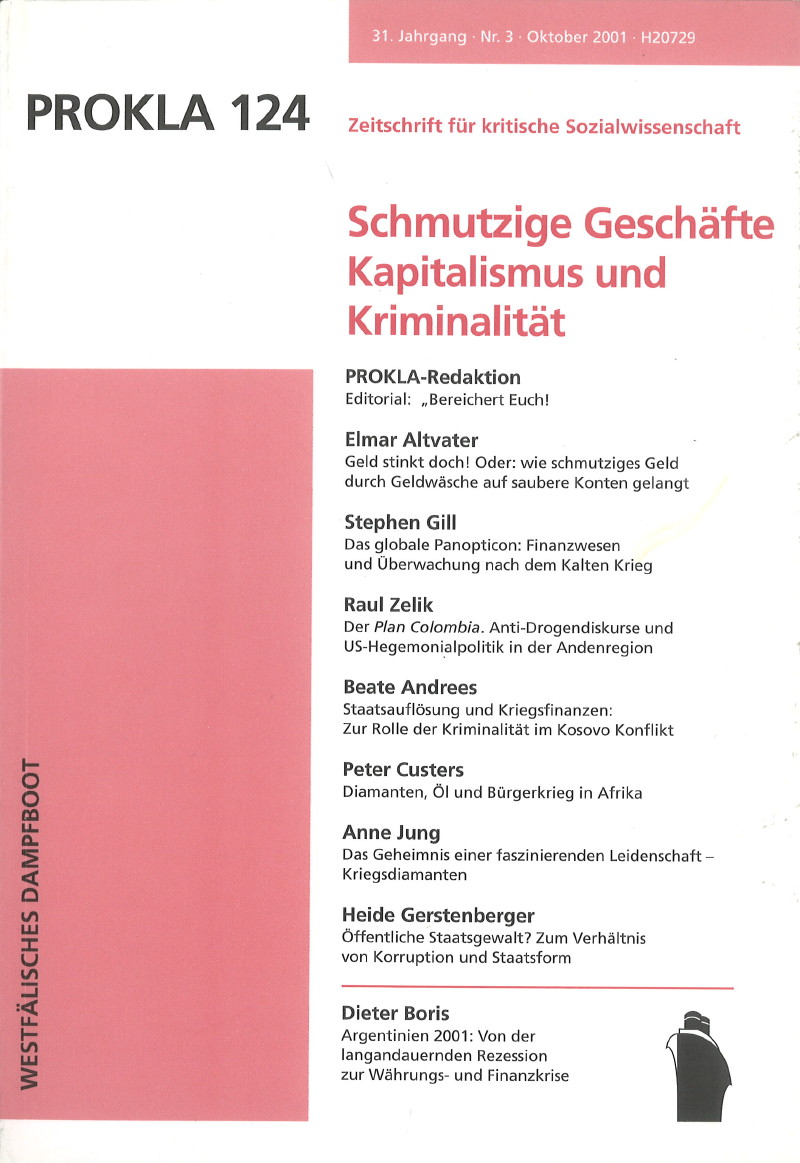Das globale Panopticon
Finanzwesen und Überwachung nach dem Kalten Krieg
DOI:
https://doi.org/10.32387/prokla.v31i124.734Schlagwörter:
Finanzmärkte, Neoliberalismus, Geldwäsche, Korruption, Politische ÖkonomieAbstract
After the Cold war new analytic and information-processing capability o f the world’s intelligence communities are linked to new ideologies of national competitiveness. It is in this context that we outline new mechanisms of public and private surveillance in finance - or in the terminology coined by Jeremy Bentham, “panopticism”. A t the same t ime we c an o bserve the massive growth of the “informal”, secret, often illegal offshore political economy which escapes the systems of accountability and regulation. When combined in the global financial system, these structures facilitate both legal and illegal, formal and informal transfers of resources from the Third World to the affluent West, as well as money laundering, financial fraud, tax evasion and other ways that serve to redistribute wealth from the poor to the rich. This is shown by our case study the collapse of the Bank of Credit and Commerce International (BCCI). US Congressional indicated how American government and security officials using the BCCI may have plundered international financial structures to privatise foreign policy and (clandestine) warfare.





